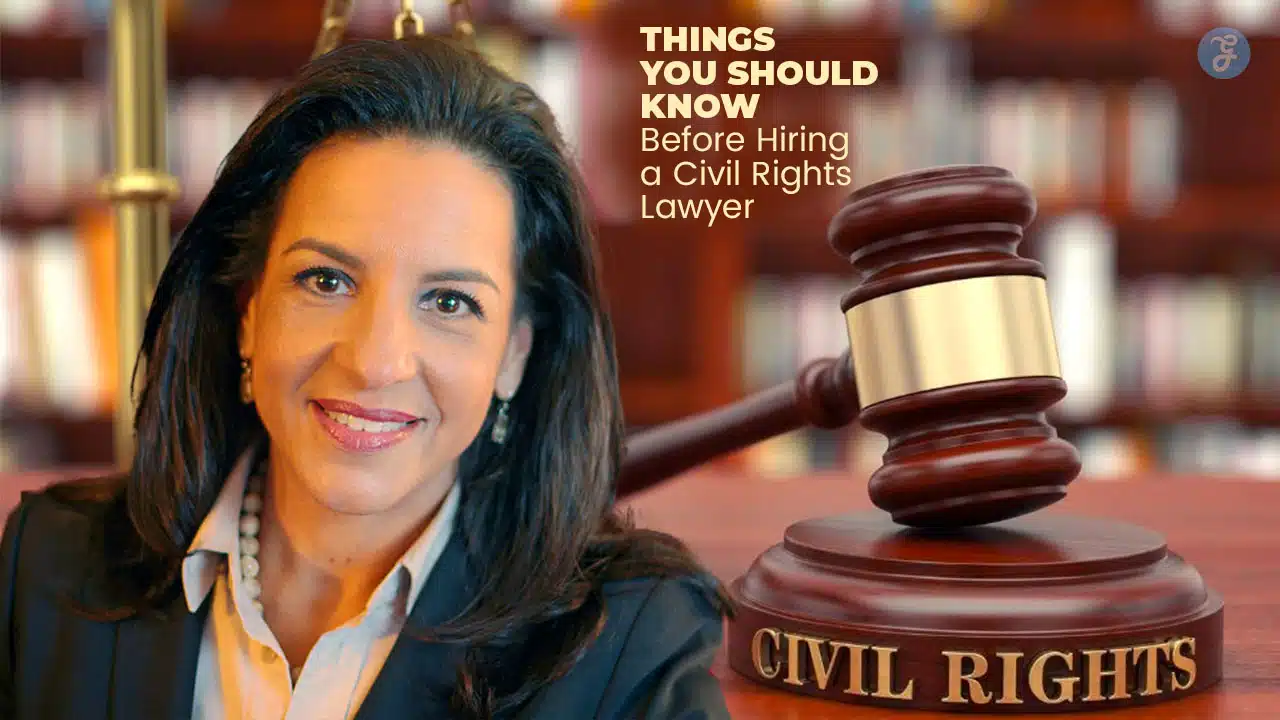Civil rights are the foundation of a fair and just society. They protect individuals from discrimination, harassment, and violations of constitutional freedoms. When these rights are violated, seeking justice can feel overwhelming.
That’s why hiring a civil rights lawyer is an essential step in protecting your rights and holding those responsible accountable. The right lawyer can help you navigate complex legal processes, build a strong case, and secure the justice you deserve.
This article will guide you through the 10 things you should know before hiring a civil rights lawyer, ensuring you’re well-prepared to choose the best legal representation for your case.
Why Hiring a Civil Rights Lawyer is Important
When your civil rights are violated, it’s crucial to have an experienced advocate by your side. Hiring a civil rights lawyer ensures that you have someone who understands the intricacies of civil rights law and can fight for your interests. These lawyers specialize in cases involving discrimination, police misconduct, and violations of constitutional freedoms.
| Reason to Hire a Civil Rights Lawyer | How They Help |
| Legal Expertise | Knowledge of laws protecting against discrimination and constitutional violations. |
| Evidence Collection | Gathering necessary documentation to strengthen your case. |
| Negotiation Skills | Working with opposing parties or insurance companies to secure fair settlements. |
| Court Representation | Advocating for you in court if the case goes to trial. |
1. Understand What a Civil Rights Lawyer Does
Civil rights lawyers play a vital role in protecting individual freedoms and holding violators accountable.
They handle cases related to:
- Discrimination (e.g., workplace bias, housing discrimination).
- Police misconduct (e.g., excessive force or wrongful arrests).
- Constitutional rights violations (e.g., freedom of speech or religion).
By hiring a civil rights lawyer, you gain access to their expertise in navigating these complex legal areas.
2. Identify Your Legal Needs
Before reaching out to an attorney, it’s important to identify the specific nature of your case.
Civil rights law encompasses various issues, such as:
- Employment discrimination (e.g., based on race, gender, or disability).
- Housing discrimination (e.g., being denied housing due to protected characteristics).
- Police misconduct (e.g., wrongful arrests or excessive force).
Knowing your legal needs will help you find a lawyer who specializes in your type of case.
3. Research Potential Lawyers
Finding the right lawyer requires thorough research. Look for attorneys who specialize in civil rights law and have experience handling cases similar to yours. Check online reviews, testimonials, and professional directories like the American Civil Liberties Union (ACLU) or National Lawyers Guild for recommendations.
4. Verify Their Credentials
A qualified lawyer should have the proper credentials, including:
- A law degree from an accredited institution.
- Licensure to practice law in your state.
- Membership in professional organizations like the National Bar Association or ACLU.
These qualifications ensure that the lawyer has the knowledge and ethical standards required to handle your case effectively.
5. Assess Their Experience
Experience is key when dealing with complex civil rights cases. Ask potential lawyers about their track record with similar cases:
Questions to Ask:
- How many years have you been practicing civil rights law?
- Have you handled cases like mine before?
- What were the outcomes?
An experienced attorney will be able to provide examples of past successes and explain how they plan to approach your case.
6. Evaluate Communication Skills
Effective communication is essential when working with a lawyer. During consultations, pay attention to how well they explain legal concepts and whether they respond promptly to questions.
| Positive Signs | Red Flags |
| Clear explanations of legal terms | Vague or confusing responses |
| Regular updates on case progress | Lack of transparency |
| Prompt responses to calls/emails | Delayed communication |
Good communication ensures that you’re informed at every stage of your case.
7. Consider Their Fee Structure
Understanding a lawyer’s fee structure is critical before signing any agreement.
Most civil rights lawyers work on one of the following payment models:
| Fee Structure | Description |
| Contingency Fee | Lawyer gets paid only if you win (percentage of settlement). |
| Hourly Rate | Pay based on hours worked on your case. |
| Flat Fee | Fixed amount for specific services. |
Tip: Always ask for a written fee agreement to avoid surprises later.
8. Look for Passion and Dedication
Civil rights cases often involve sensitive issues that require lawyers who are deeply committed to justice and equality.
Signs of passion include:
- Involvement in community advocacy or pro bono work.
- Positive client testimonials highlighting their dedication.
- A genuine interest in understanding your story during consultations.
Passionate lawyers are more likely to go above and beyond for their clients.
9. Ask About Case Strategy
Discussing strategy upfront helps set expectations about timelines and potential outcomes.
Questions to Ask:
- What is your approach for handling cases like mine?
- How long do you expect this case will take?
- What challenges do you foresee?
A good lawyer will outline a clear plan tailored specifically to your situation.
10. Trust Your Instincts
Finally, trust your instincts when choosing an attorney. You should feel comfortable sharing personal details with them and confident in their ability to represent you effectively.
If something feels off during consultations, don’t hesitate to explore other options until you find someone who feels like the right fit.
Takeaway
Having expert legal representation can make a significant difference when facing violations of your fundamental freedoms. By carefully considering these 10 factors before hiring a civil rights lawyer, you’ll be better equipped to find someone who meets your needs and fights passionately for justice on your behalf.
Whether you’re dealing with workplace discrimination, police misconduct, or constitutional violations, the right lawyer will provide the expertise and support needed to navigate these challenges effectively.
Take action today by researching experienced attorneys who specialize in civil rights law—because protecting your rights starts with making informed decisions about legal representation!




































